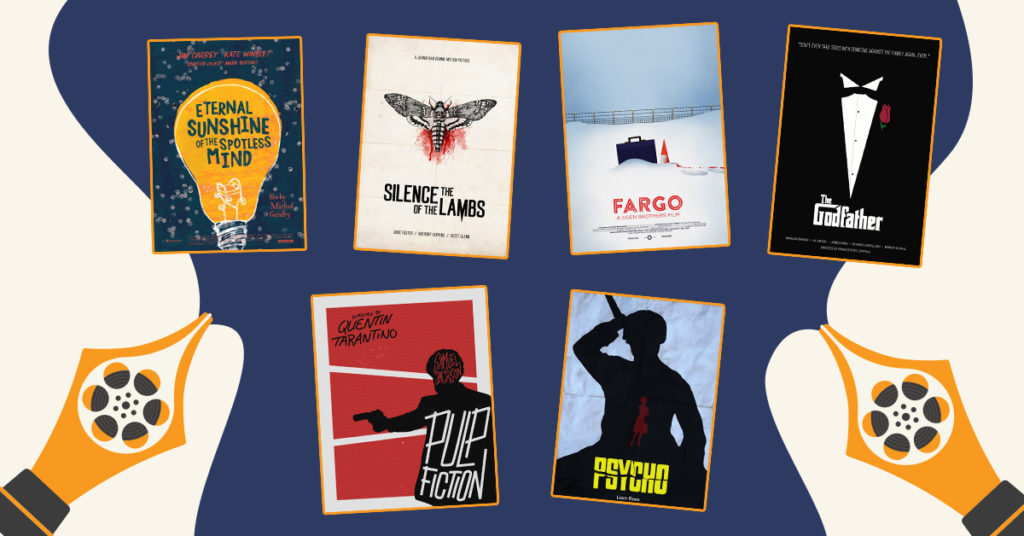6 Screenplays That Every Screenwriter Must Know

Studying great screenplays is the best approach to develop your skills if you’re an aspiring screenwriter. It is imperative to be aware of the popular screenplay genres if you want to cater your content to the market. Reading screenplays will also help you understand how a screenplay needs to be structured and presented. Every prospective screenwriter can refer to the following crucial list of the best screenplays. It includes the screenplays of some cult-classic movies. This isn’t an exhaustive screenplay list since there are so many brilliant screenwriters, but it will help you understand what makes a great screenplay and how to replicate the methods utilised.
1. The Silence of the Lambs (1991)
This is one of the best examples of a novel being adapted into a great screenplay structure. Ted Tally does a fantastic job in compressing everything that happens in a long novel into a two-hour film. The script’s emphasis on the characters and their inherent motivations is where it really shines. Tally allows us to have a better understanding of FBI agent Clarice and the terrifying Hannibal Lecter. There are a lot of active characters in the plot who are all aiming towards something. There isn’t a single scene that isn’t in its proper place, therefore they aren’t tedious. A scene either advances the plot or shows a character’s motivations. To get to such a tight screenplay, multiple versions and rewrites are required. As a result, one important piece of advice is to constantly revising your script because there is no such thing as a perfect screenplay.
2. Pulp Fiction (1994)
Quentin Tarantino intended to show the rest of the world the Los Angeles he had seen – the gritty underbelly, the shady underworld operations. It’s a ground-breaking film for a variety of reasons, one of which is that it exposed mainstream viewers to non-linear narrative. Tarantino earned an Academy Award for Best Screenplay for his fast-paced dialogue and unique storylines. One of the reasons Pulp Fiction stands out is because it provides the vicarious excitement of a voyage into what appears to be a mundane, everyday setting populated by weird personalities and obscure subcultures, almost as if we were voyeuristically watching the dark side of our own world.
3. Eternal Sunshine of the Spotless Mind (2004)
With his inventive screenplays, Charlie Kaufman has earned a reputation for himself. This is perfectly demonstrated in Eternal Sunshine of the Spotless Mind. Kaufman combines a concept like memory erasure with a highly emotional story about two people falling in and out of love. The plot is never difficult to follow in a script that deals with the complex premise of a man’s struggle with his girlfriend’s erasure of their relationship. Throughout Joel’s journey, it’s simple to empathise with him. We’ve all been through a nasty breakup and found ourselves ruminating about each sad memory. Charlie Kaufman recognises this and uses human emotions and experiences to anchor the nearly sci-fi-sounding storyline.
4. Fargo (1996)
If someone ever tells you that a movie can’t be humorous, suspenseful, morbid, and bizarre all at the same time, encourage them to watch Fargo. It has become a classic in film school courses, Writers Guild screenings, and home viewing sessions due to its representation of the Coens’ home state of Minnesota, paired with a tension-inducing plot of a simple scheme gone horribly astray.
5. The Godfather
The emotional impact of seeing a good man perverted by his family and circumstances gives this film its power. The criminal stuff is fantastic, but the fundamental theme is one of emotional devastation, which is handled with such brutality. Its writing is so rich in detail about the Italian-American mafia that it elevates the film above and beyond its (amazing) graphics.
6. Psycho
Psycho is a brilliant outlier. It defies so many norms and gets away with it that it’s borderline criminal. To begin with, there is no true protagonist. Marion Crane, played by Janet Leigh, is the closest thing to it, but she’s not only unlikable, but she’s also killed off a third of the way through the movie. Norman Bates, played by Anthony Perkins, is the most endearing and charismatic character in the picture, and we still care about him even when we hear the truth about him in the twist ending… And, since we’re on the subject of twist endings, is there a better model for the current twist ending than Psycho?
This is by no means a complete list, but these are things to know about screenplay whether you are an aspiring or experienced screenwriter. All of these screenplays are remarkable, not only for the quality of their writing, but also for the impact they have had on cinema.


